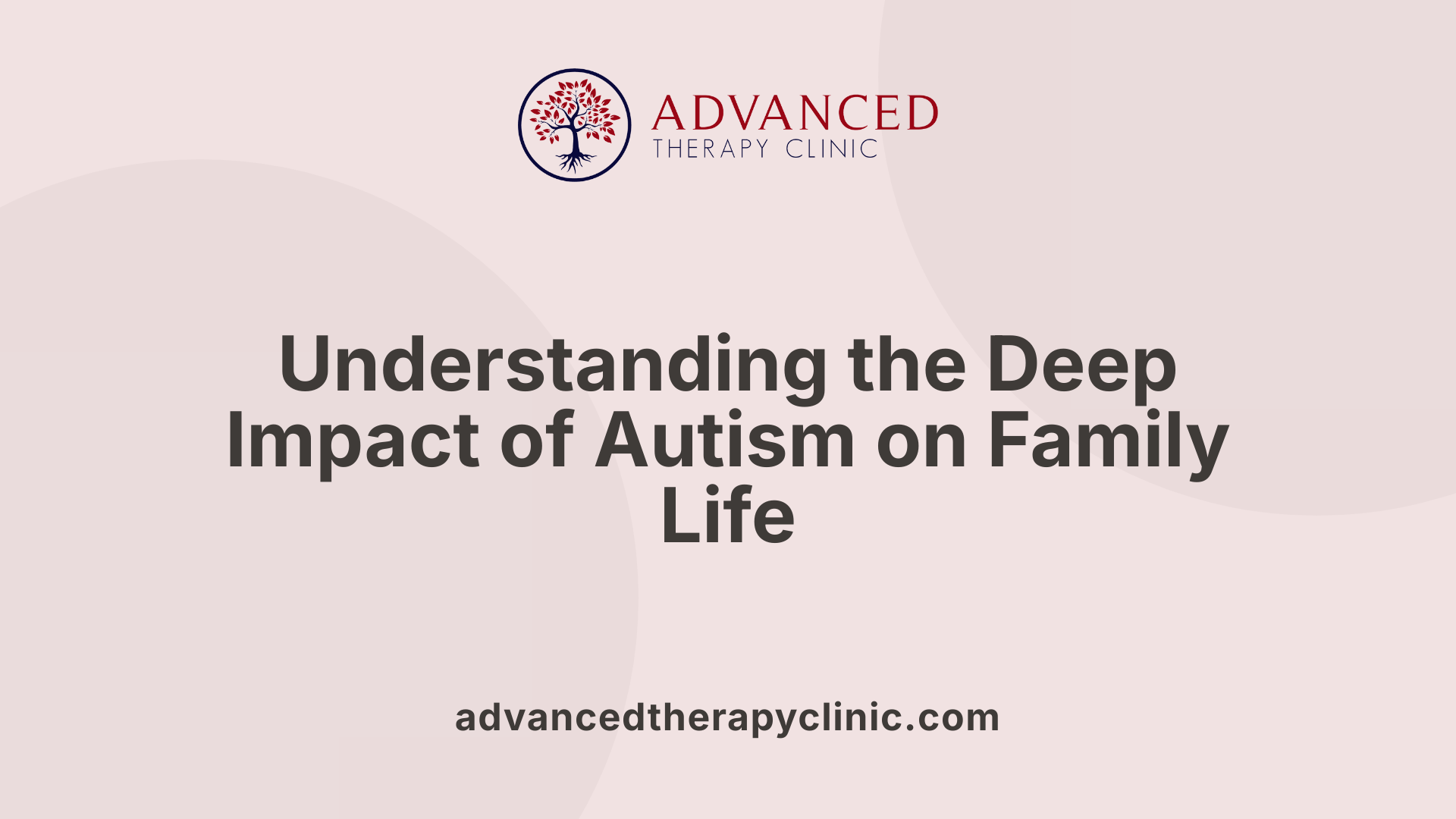Can Autistic People Have Kids?


Exploring Parenthood and Autism
Autism Spectrum Disorder (ASD) is a lifelong neurodevelopmental condition that affects communication, behavior, and social interactions. As awareness and diagnoses increase, more autistic individuals are embracing parenthood. This article explores whether autistic people can have children, the unique strengths and challenges they face in parenting, and the resources and supports available to help them nurture healthy, thriving families.
Autistic Individuals as Parents: Strengths and Unique Perspectives
What strengths do autistic parents bring to parenting?
Autistic parents often bring valuable strengths to their parenting role, which positively shape their family environment. They frequently exhibit deep empathy, allowing them to attune closely to their children's emotional needs and foster strong bonds. Their commitment to routines provides stability and predictability for the family, which can be especially beneficial in managing daily activities and supporting their children's sense of security.
Moreover, autistic parents tend to excel in analytical problem-solving. This skill helps them to navigate challenges thoughtfully, devise creative solutions, and adapt strategies to meet their children's unique needs effectively.
How do empathy, commitment to routines, and problem-solving skills shape parenting?
Empathy enables autistic parents to connect with their children on a profound level, understanding subtle emotional cues and responding with sensitivity. Their strong adherence to routines creates structured environments that facilitate comfort and reduce anxiety for both parents and children. Analytical abilities empower them to systematically approach complex parenting situations, ensuring well-considered decisions and consistent care.
What misconceptions about autistic parents need to be addressed?
A common misconception is that autistic individuals lack empathy or are inherently incapable of effective parenting. This stereotype is unfounded and ignores the nuanced, diverse ways autistic parents engage with their children. By debunking such myths, society can foster greater confidence among autistic parents and promote advocacy for their strengths.
Recognizing and valuing the unique perspectives and skills autistic parents bring is crucial. Their parenting style often nurtures understanding, creativity, and resilience within the family, encouraging an inclusive and supportive atmosphere for all members.
Common Challenges Faced by Autistic Parents
Sensory Sensitivities and Overload
Autistic parents often experience heightened sensory sensitivities, which can make typical parenting environments challenging. Loud noises, unexpected touch, or chaotic surroundings may lead to sensory overload. This discomfort can affect their ability to respond calmly and effectively during everyday parenting tasks.
Executive Functioning Difficulties
Managing the demands of parenting requires strong executive functioning skills such as meal planning, scheduling, and maintaining consistent routines. Many autistic parents face challenges in these areas, which can lead to stress and difficulty in keeping family life organized.
Emotional Regulation Challenges
Parenting can elicit intense emotions, and autistic individuals may find emotional regulation particularly demanding. Managing feelings of frustration, anxiety, or overwhelm while caring for children requires additional coping strategies to maintain well-being.
Environmental Triggers
Noisy, busy, or unpredictable environments often act as triggers for stress and sensory overload. These factors can complicate daily activities such as school events, social gatherings, or public outings, adding extra pressure on autistic parents.
By recognizing these challenges, autistic parents can implement tailored coping methods and seek support to foster a positive parenting experience.
Strategies and Tools to Support Autistic Parenting
Sensory Modifications
Many autistic parents manage sensory challenges by adapting their environments. Tools such as noise-canceling headphones help reduce auditory overload, while adjusting lighting can minimize visual discomfort. These sensory modifications create calmer spaces, essential for maintaining emotional balance and reducing stress during parenting activities.
Use of Visual Planners and Reminder Apps
Executive functioning tasks like meal planning and managing daily routines can be demanding. Visual planners serve as clear, structured aids that help organize the day. Reminder apps further support time management and task completion, providing prompts and alerts to keep parents on track amidst busy schedules.
Tailored Communication Methods
Effective communication tailored to individual needs is vital. Visual supports, including charts or picture schedules, help convey expectations and instructions clearly. Additionally, assistive devices facilitate smoother interaction, enhancing understanding and cooperation within the family.
Realistic Expectations and Structured Self-Care
Setting achievable goals aligns parenting demands with personal capacities, reducing undue pressure. Equally important is self-care—autistic parents benefit from routine practices that rejuvenate and maintain mental health. Prioritizing these supports sustainable, loving parenting and helps nurture both parent and child well-being.
Professional Therapies and Supports Beneficial for Autistic Parents
What types of therapies help autistic parents?
Autistic parents can greatly benefit from neurodivergent-affirming therapies that respect their unique neurological experiences. Common approaches include Cognitive Behavioral Therapy (CBT), Acceptance and Commitment Therapy (ACT), and Dialectical Behavior Therapy (DBT). Occupational therapy is also important as it targets sensory processing challenges, while parent coaching offers practical strategies tailored to individual needs.
How do these therapies support emotional regulation, sensory processing, and executive function?
These therapies equip autistic parents with tools for managing emotional regulation challenges and sensory sensitivities often intensified during parenting. CBT and DBT provide skills for coping with anxiety and emotional dysregulation. Occupational therapy offers sensory modifications and techniques to handle overload situations. Additionally, parent coaching helps improve executive functioning, such as organizing routines, planning meals, and managing daily tasks.
What role do professional supports play in building parenting skills and resilience?
Professional therapy not only addresses immediate challenges but also fosters resilience and confidence. Tailored interventions encourage self-care, realistic goal-setting, and effective communication methods like visual supports and assistive devices. Therapists work collaboratively with parents to develop personalized strategies that recognize strengths such as deep empathy and analytical problem-solving, enabling a nurturing and supportive family environment.
Through ongoing professional support, autistic parents can better handle the multifaceted demands of parenting while preserving their well-being and fostering positive relationships with their children.
The Role of Community and Peer Support for Autistic Parents

Validation and Shared Experiences through Online Forums and Advocacy Groups
For autistic parents, online forums and advocacy groups provide crucial validation and a sense of belonging. These platforms allow parents to share their stories, challenges, and victories with others who truly understand their experiences. This exchange reduces feelings of isolation and fosters a supportive environment where parents feel seen and heard.
Local Organizations Offering Practical Support and Resources
Many local organizations focus on offering practical assistance tailored to autistic parents. These resources include workshops, parenting courses, and access to community programs that help with navigating sensory sensitivities and executive functioning challenges associated with autism. Such organizations often collaborate with professionals to offer neurodivergent-affirming support, making essential tools and therapies more accessible.
Reducing Isolation and Building Advocacy Networks
Engagement in community networks empowers autistic parents to advocate effectively for themselves and their families. By connecting with peers both online and locally, parents build resilience against societal stigmas and misinformation. These networks provide a platform to influence policy, promote awareness, and create inclusive family environments that celebrate autistic strengths.
Together, these community and peer support systems form a vital foundation for autistic parents to thrive, offering emotional sustenance, practical advice, and collaboration opportunities that enrich family life and individual well-being.
Parenting Autistic Children: Unique Challenges and Rewards
Navigating Healthcare, Education, and Social Systems Designed Without Autistic Needs in Mind
Parents of autistic children frequently face difficulties when interacting with healthcare, education, and community services that often do not accommodate the specific needs of autistic individuals. These systems can be complex and unresponsive to sensory sensitivities or communication styles, creating added stress for families trying to secure appropriate support and resources. Advocacy and persistence become vital as parents work to ensure their child's needs are recognized and met.
Common Parental Feelings: Isolation, Stress, Joy, and Growth
Parenting a child with autism involves a range of emotional experiences. Many parents report feelings of isolation and stress due to constant vigilance, therapy management, and social misunderstandings. At times, feelings of helplessness or fatigue emerge, often compounded by concerns about the future. However, alongside these challenges, parents also experience profound joy, meaningful connection, and personal growth. These positive moments nurture resilience and deepen family bonds.
Understanding Sensory Sensitivities Unique to Autistic Children
Autistic children often have distinct sensory profiles, which can include both sensory seeking behaviors like a need for deep pressure and avoidance of stimuli such as loud noises or bright lights. These sensitivities vary widely among individuals. Being aware of and accommodating these differences is crucial for creating a comfortable and supportive environment. Sensory-friendly settings and tailored routines can reduce overwhelm and support well-being.
Supporting Children’s Identity and Neurology Through Early Acceptance and Communication
Early understanding and acceptance of a child's autism identity greatly enhance their sense of self and overall well-being. Open communication about autism helps children internalize positive self-perceptions and fosters emotional security. Educational approaches that respect individual neurology and encourage strengths-based understanding empower children as they navigate their development and social experiences.
Educational and Therapeutic Interventions for Autistic Children
Why is early intervention important and what is the average diagnosis age?
Early intervention plays a critical role in improving outcomes for children with Autism Spectrum Disorder (ASD). Signs of autism can be observed as early as 9 months, yet the average diagnosis often occurs between ages 4 and 5. Starting treatment early helps enhance social communication skills and adaptive behaviors during crucial developmental periods.
What are Naturalistic Developmental Behavioral Interventions (NDBIs)?
NDBIs, such as Pivotal Response Treatment and the Early Start Denver Model, integrate behavioral principles within natural settings like home or preschool. These interventions focus on promoting social engagement and communication through play and daily activities, making therapy more effective and generalizable for young children.
How do caregiver training programs support children and families?
Programs like Project ImPACT and JASPER train caregivers to implement interventions, significantly improving children's social and communication skills while reducing caregiver stress and depression. Other programs, such as RUBI, Parent-Child Interaction Therapy (PTR), and AIM HI, emphasize managing challenging behaviors through role play, modeling, and feedback. Many also utilize telehealth to increase accessibility.
How are challenging behaviors addressed?
Evidence-based behavioral interventions, rooted in Applied Behavior Analysis (ABA), effectively tackle challenging behaviors including aggression and self-injury. These treatments aim to understand the function behind behaviors and teach adaptive skills, thereby improving child safety and family well-being.
Together, these educational and therapeutic approaches involve both the child and caregivers, ensuring holistic support that fosters development, reduces stress, and enhances quality of life within families affected by ASD.
Impact of Parenting an Autistic Child on Family Dynamics

How Does Parenting an Autistic Child Affect Parental Stress and Mental Health?
Parents of children with autism often face heightened stress levels compared to other parents. This elevated stress stems from constant vigilance in managing therapy regimens, coping with challenging behaviors, and dealing with sleep disruptions. Mothers, in particular, are prone to developing depression, anxiety, and even post-traumatic stress disorder (PTSD), with the severity of the child's impairment increasing maternal mental health risks.
What Effects Does Parental Stress Have on the Child's Well-being and Progress?
Parental psychological stress can directly impact the welfare of the autistic child by disrupting household routines, which increases anxiety and complicates emotional regulation. This disruption may hinder communication efforts and slow progress in therapies designed to support the child’s development. Chronic stress can make consistent implementation of interventions more difficult.
How Are Fathers, Siblings, and Marital Relationships Affected?
Fathers frequently experience frustration, anger, and feelings of guilt related to their child’s behaviors, often feeling judged or embarrassed. Siblings may face emotional challenges such as jealousy, neglect, or embarrassment, sometimes acting out through aggression. Marital relationships can also suffer: data shows couples with an autistic child have increased risk of divorce, partly due to the pressures and stresses associated with caregiving and navigating support systems.
What Financial Challenges Do Families Encounter?
Financial strain is a significant issue for families raising a child with autism. Therapy and intervention costs are often high and may not be covered by insurance, decreasing available family income. These financial burdens can affect employment stability, as parents may need to reduce work hours or leave jobs to provide care, creating further economic hardship.
These complexities emphasize the importance of comprehensive support for families, including mental health resources, flexible work policies, and access to affordable therapies, to help balance family dynamics and improve outcomes for both children and their caregivers.
Stress Management and Mental Health Support for Parents

What Are the Psychological and Physical Effects of Chronic Parenting Stress?
Parenting children with autism often brings heightened levels of stress, which can deeply affect psychological and physical health. Parents frequently experience depression, anxiety, and emotional exhaustion, while chronic stress increases cortisol levels that compromise immune function and overall well-being. This ongoing strain may disrupt family routines and diminish the ability to manage daily caregiving demands effectively.
What Strategies Can Help Reduce Parenting Stress?
Several practical strategies are essential for alleviating stress in parents of autistic children. Acceptance of the child's diagnosis and abilities fosters emotional resilience. Building strong support networks, including family, friends, and community groups, helps combat isolation and share caregiving burdens. Self-care routines, such as adequate rest and enjoyable activities, rejuvenate mental health. Emotional regulation techniques like breathing exercises help parents manage overwhelming feelings to remain calm and focused.
How Do Therapeutic Approaches Like ACT and MBSR Support Parents?
Acceptance and Commitment Therapy (ACT) and Mindfulness-Based Stress Reduction (MBSR) have proven valuable in reducing parental stress. ACT encourages acceptance of difficult emotions while committing to values-driven behavior, enhancing psychological flexibility. MBSR involves mindfulness meditation that improves present-moment awareness and decreases rumination. Participation in these therapies strengthens coping skills, reduces anxiety, and improves overall mental health for caregivers.
Why Are Culturally Responsive and Flexible Services Important?
Offering culturally responsive and flexible support services ensures that interventions respect diverse family backgrounds and individual needs. Providing information tailored to cultural contexts, flexible scheduling, child care during sessions, and engaging the entire family enhances access and adherence. When services are attuned to these factors, parents feel understood, leading to better outcomes for the family.
| Aspect | Description | Benefit |
|---|---|---|
| Psychological Impact | Depression, anxiety, emotional exhaustion | Awareness aids early intervention and mental health care |
| Physical Impact | Elevated cortisol, compromised immune response | Highlights importance of stress management |
| Stress Reduction Techniques | Acceptance, network building, self-care, emotional regulation | Improves parental resilience and caregiving ability |
| Therapeutic Models | ACT, MBSR | Proven reduction in stress and enhanced coping mechanisms |
| Service Delivery | Cultural responsiveness, flexibility | Increases engagement and effectiveness of support programs |
Understanding the Genetic and Environmental Factors in Autism
Genetic contributions and risk factors including parental age
Autism spectrum disorder (ASD) is influenced by a combination of genetic and environmental factors. Genetics plays a central role in the development of autism, with various genes contributing to an individual's susceptibility. One notable risk factor is parental age, especially advanced paternal and maternal ages, which have been linked to a higher chance of having a child with ASD.
Influence of environmental factors such as prenatal exposure to pollutants and medicines
Beyond genetics, environmental influences during pregnancy can affect autism risk. Exposure to pollutants and heavy metals, maternal diabetes during pregnancy, and complications such as prematurity or low birth weight increase the likelihood of ASD. Additionally, certain prenatal medications like valproate and carbamazepine have been associated with a greater risk of autism in offspring.
Debunking myths about vaccines and autism
It is important to address misconceptions surrounding autism causation. Extensive and rigorous research has conclusively shown that vaccines, including the MMR (measles, mumps, and rubella) vaccine, do not cause autism. This myth has been thoroughly debunked, emphasizing the need for accurate information to guide public understanding.
The complexity of autism etiology
Autism's origins are multifaceted and complex, involving an interplay of genetics, prenatal environment, and possibly other yet-to-be-discovered factors. The diversity in autism presentations reflects this complexity, with each individual’s condition shaped by a unique combination of influences. Recognizing the nuanced causation is crucial to supporting affected individuals and advancing research.
Promoting Acceptance and Advocacy Within Families and Communities

Benefits of learning from autistic adults and autistic communities
Engaging directly with autistic adults and communities offers invaluable insights beyond clinical descriptions. This firsthand knowledge fosters greater understanding of the lived experiences of autistic individuals, helping families to approach autism from a more informed and compassionate perspective. Learning within these communities enables parents and caregivers to identify strengths and challenges as they are truly experienced, promoting empathy and tailored support.
Fostering strength-based perspectives and avoiding misrepresentations
A strengths-based approach highlights the unique qualities autistic individuals bring to families and communities, such as deep empathy and focused attention. Counteracting common misconceptions—like the false belief that autistic people lack empathy or parenting ability—empowers autistic parents and advocates. Emphasizing abilities over deficits builds confidence and helps shift societal narratives towards acceptance.
Encouraging inclusive and respectful engagement with autistic behaviors and needs
Respectful recognition of autistic behaviors involves avoiding the suppression or masking of natural traits. Therapeutic and educational interventions should honor individual preferences and neurodivergent communication styles, using tools like visual supports and assistive devices when appropriate. This respect facilitates authentic self-expression and supports well-being across the lifespan.
Supporting lifelong accessibility in therapies and services
Access to supportive therapies and services must extend throughout an autistic person’s life, adapting to their evolving needs. Neurodivergent-affirming approaches—such as cognitive-behavioral therapies, occupational therapy, and parent coaching—support emotional regulation, executive functioning, and sensory management. Ensuring inclusivity in healthcare and social services promotes autonomy and quality of life for autistic individuals and their families.
The Potential for Autistic People to Lead Fulfilling Family Lives
Encouraging Personalized Strategies and Boundary Setting
Autistic parents thrive by developing personalized approaches tailored to their unique needs and strengths. Setting clear boundaries helps manage sensory sensitivities and executive functioning demands, such as meal planning and daily routines. Utilizing tools like visual planners and reminder apps, alongside seeking support from partners or community resources, empowers parents to navigate challenges effectively.
Harnessing Strengths to Foster Supportive, Loving Family Environments
The deep empathy, focused attention, and analytical problem-solving skills commonly found in autistic parents create nurturing and understanding family dynamics. These strengths enable creative exploration and open communication within the household, fostering an environment where all members feel supported and valued.
Recognizing Parenting Capacities Beyond Neurological Differences
It is essential to acknowledge that autism does not diminish one's parenting abilities. Autistic parents offer meaningful contributions, countering misconceptions that underestimate their capacity to provide effective care and emotional support. This recognition promotes confidence and advocacy within autistic families.
Shared Rights and Opportunities for Autistic Parents and Their Children
Autistic individuals and their children possess equal rights to health, participation, and support systems. Embracing these rights helps ensure autistic families gain access to appropriate resources, affirming their worth and enhancing their quality of life. Inclusive services and community support pave the way for enriching and fulfilling family experiences.
Autism and Parenthood: Embracing Potential and Nurturing Support
Autistic individuals can absolutely be loving, capable parents who bring unique strengths to their families. While parenting with autism presents certain challenges — from managing sensory sensitivities to executive functioning demands — effective strategies, supportive therapies, and community resources help navigate these complexities. Furthermore, parenting autistic children involves its own rewarding challenges, underscoring the need for empathy, education, and advocacy. By fostering understanding, debunking myths, and emphasizing acceptance, we can create more inclusive environments that empower autistic parents and their families to thrive together.
References
Recent articles

How To Become an Autism Support Teacher
Pathways and Essentials for Aspiring Autism Support Teachers

How Occupational Therapy Helps Children with Sensory Processing Issues
Unlocking Potential: The Transformative Role of Occupational Therapy in Sensory Processing

Does Mold Cause Autism
Exploring Environmental Factors in Autism Spectrum Disorder: Beyond Mold

The Benefits of ABA Therapy for Non-Verbal Children
Unlocking Communication: How ABA Therapy Transforms the Lives of Non-Verbal Children

The Role of Speech Therapy in Developing Social Language Skills
Unveiling the Impact of Speech Therapy on Social Language Development

Dairy And Autism
Exploring Dietary Dynamics in Autism: The Role of Dairy and Beyond

